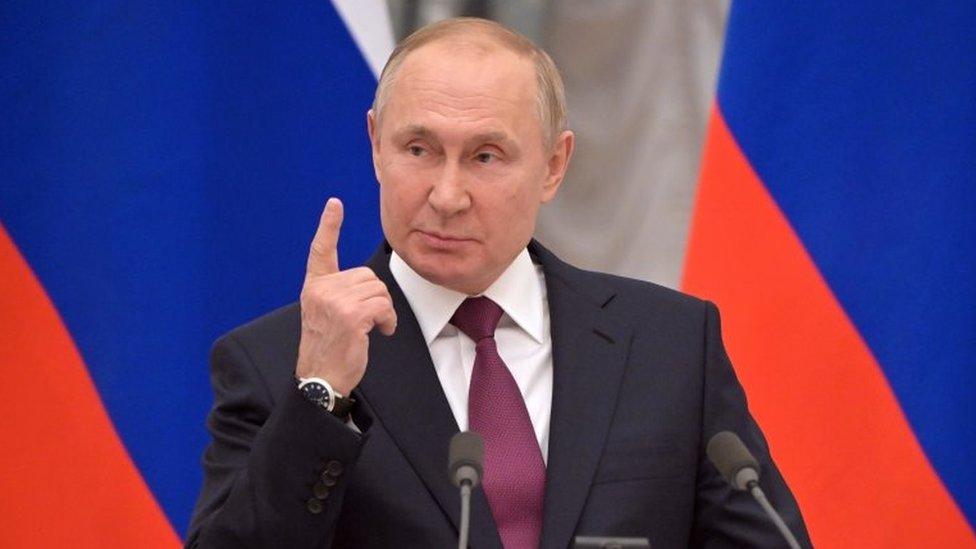Ukraine conflict: Your guide to understanding day three
- Published
Watch: The Ukrainian women hand-making Molotov cocktails
The Ukrainian capital Kyiv has been under Russian missile fire, but remains in the hands of the government of President Volodymyr Zelensky.
Mr Zelensky says Ukrainians had been fighting Russian troops in Kyiv, as well as Odesa in the south and Kharkiv in the north-east.
"The occupiers wanted to block the centre of our state," the president said. "We broke their plan."
As Russians close in, though, Kyiv residents have been asked to stay indoors until Monday morning.


The invasion has killed at least 198 Ukrainians so far and the UN says more than 120,000 have fled the country in the past 48 hours.
Ukraine said 137 people - civilians and soldiers - have been killed, while Russia has not admitted any deaths on its side.
West to block some Russian banks from Swift
New financial sanctions have been levelled against Russia - the most severe so far - after the EU, US and their allies agreed to cut off a number of Russian banks from the main international payment system, Swift.
Russia is heavily reliant on the Swift system for its oil and gas exports, and analysts say its economy will be hit hard.
The assets of Russia's central bank will also be frozen, limiting the Kremlin's ability to access its overseas reserves.
This will stop it using its currency to limit the impact of sanctions.
The measures will "further isolate Russia from the international financial system", a joint statement said.

Abramovich hands over Chelsea
Chelsea's Russian owner Roman Abramovich says he is "giving trustees of Chelsea's charitable foundation the stewardship and care" of the club.
Mr Abramovich is one of Russia's richest people and believed to be close to President Vladimir Putin - who is facing personal sanctions by a number of Western countries over the invasion.
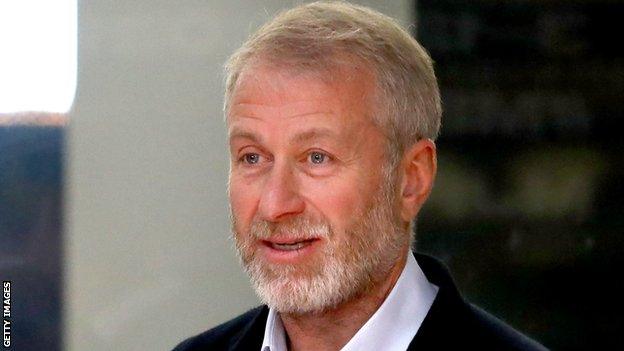
Abramovich has owned Chelsea since 2003
It is not known yet if Abramovich might be sanctioned as part of the UK government's measures against Russia.

France intercepted and impounded a Russian-flagged cargo ship suspected of breaching sanctions imposed because of the invasion of Ukraine.
The ship, the Baltic Leader, was heading from the north-western French city of Rouen to St Petersburg in Russia with a cargo of new cars.
The US Treasury Department has issued blocking sanctions against the vessel, saying it is owned by a subsidiary of Promsvyazbank, one of the Russian financial institutions hit by sanctions.

Sandbags and petrol bombs: Kyiv gears up to face Russians

We saw men, in jeans and trainers, taking up position: the luxury of camouflage protection not possible in this moment of crisis. Makeshift roadblocks had been assembled.
A tractor and a delivery truck had parked at strategic angles to block the path of any incoming attacker.
In other cities, steelworkers are reported to have welded new obstructions into place: forging their own defences. And workers in a sewing factory who normally stitch uniforms have been making sandbags.
Across the country, patriotic Ukrainians are weaving their own narrative and hoping their collective effort will count for something in the face of Moscow's military might.
The urgency of all this tells you many fear it is a question of when - not if - they'll be face-to-face with the advancing Russian forces.

Queue of 24 hours
On the Moldovan border - and the borders of four other nations neighbouring Ukraine - mothers and grandmothers, wheeling suitcases to safety, have been leading their children into the unknown. Men are not allowed to join them - they have to stay behind to fight.
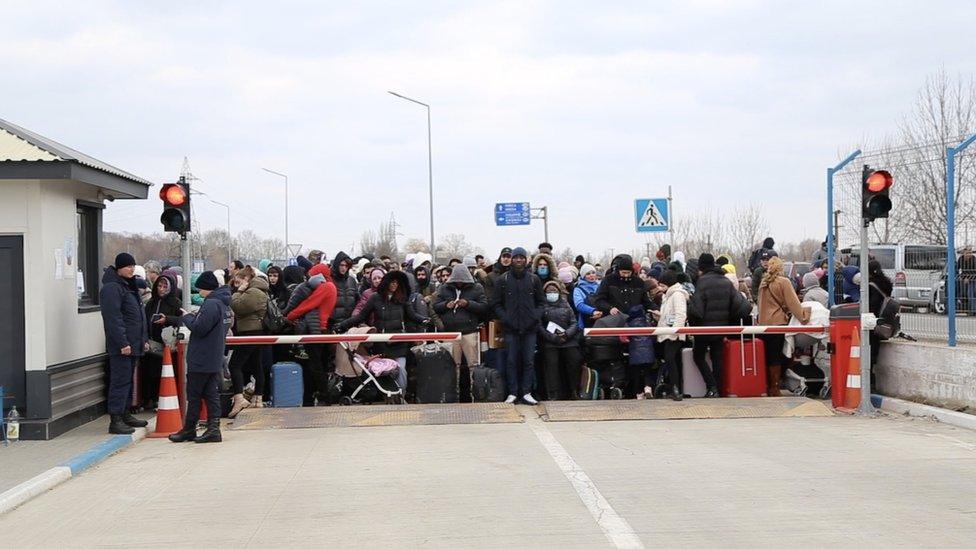
A long queue lies behind - and a long and uncertain wait to cross into the unknown
Ana arrived at the Palanca crossing point after more than 24 hours waiting in a queue on the Ukrainian side of the border - her little yellow car stuffed with bags, her six-year-old granddaughter singing to herself in the backseat.
Ana's calm smiling manner crumbled as soon as she began to speak to the BBC. Breaking down in tears, she described how she'd had to leave her husband behind to defend their country.
Read Ana's story and more accounts of fleeing Ukrainians here

Watch the BBC's Fergal Keane describe scenes at a crush at a train station platform in the city of Lviv as hundreds tried to force their way on to a train bound for Poland.
Watch: A woman can be heard screaming as crowds try to force themselves onto a train bound for Poland

Leader under siege
It may be a David-versus-Goliath struggle, but it is one that has thrown the figure of President Volodymyr Zelensky into the limelight.
Zelensky's arrival on the political scene was a case of life imitating art. But it is life that is at stake here now his country is under attack and the capital under siege.
Tested like never before, the Ukrainian commander-in-chief has appeared to strike all the right notes, as you can read in this profile of the 44-year-old leader here.
Zelensky's defiant response to invasion... in 100 seconds
Related topics
- Published27 February 2022
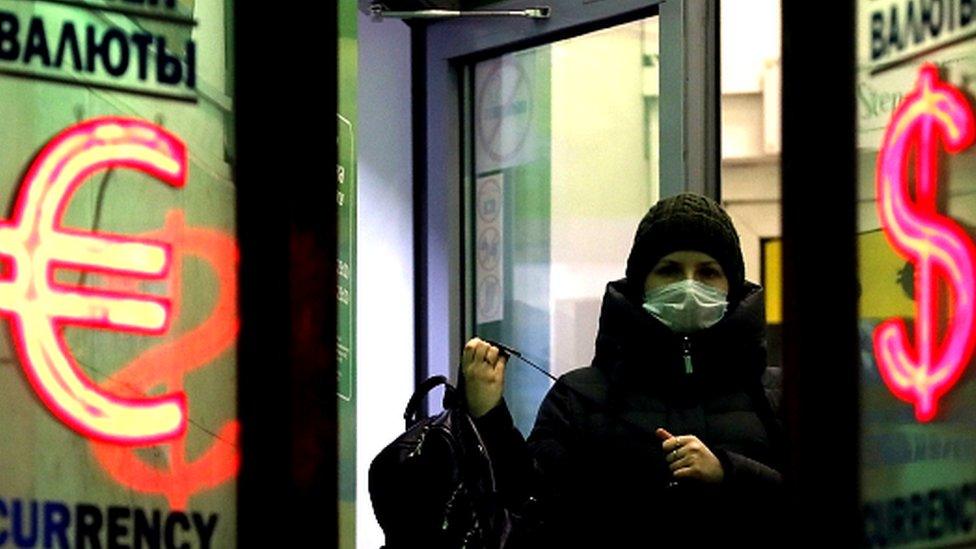
- Published25 February 2022
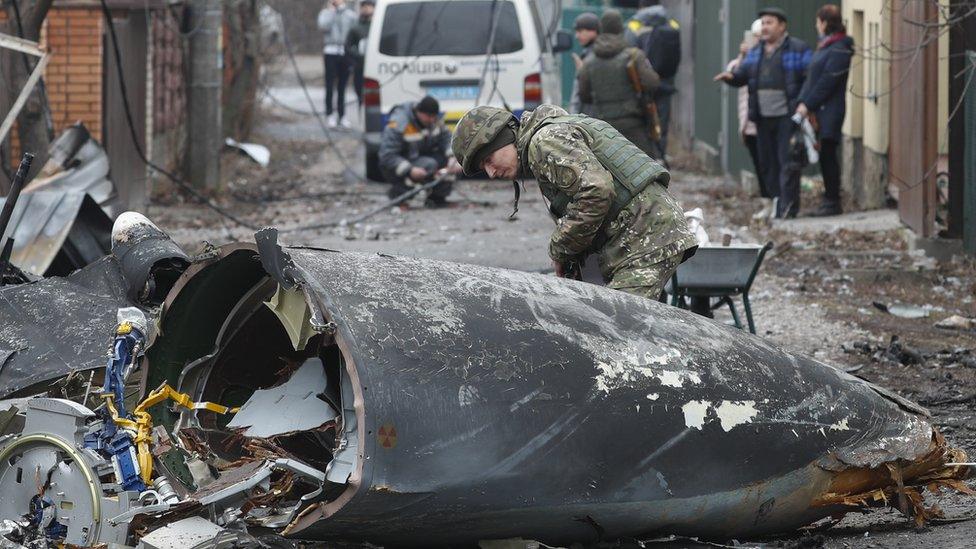
- Published25 February 2022

- Published25 February 2022
